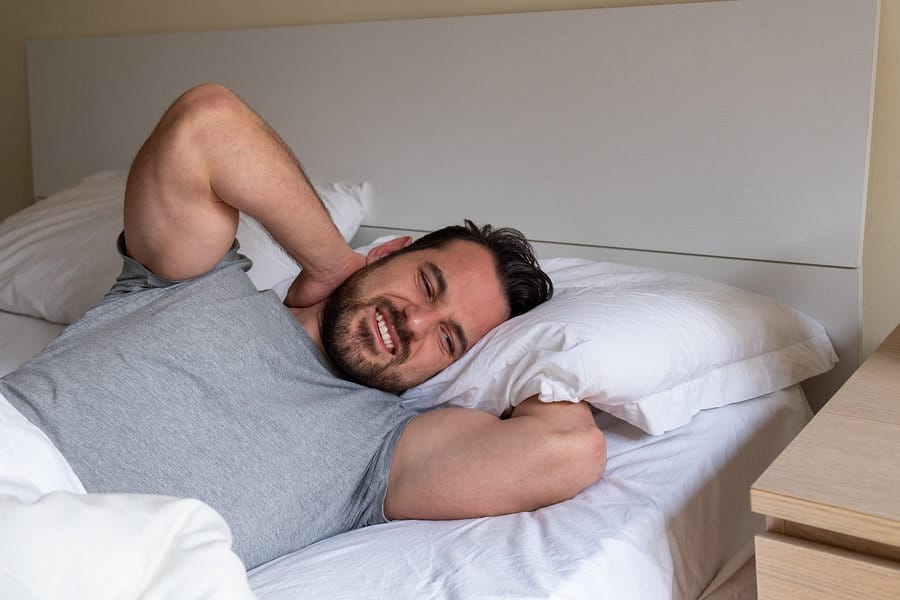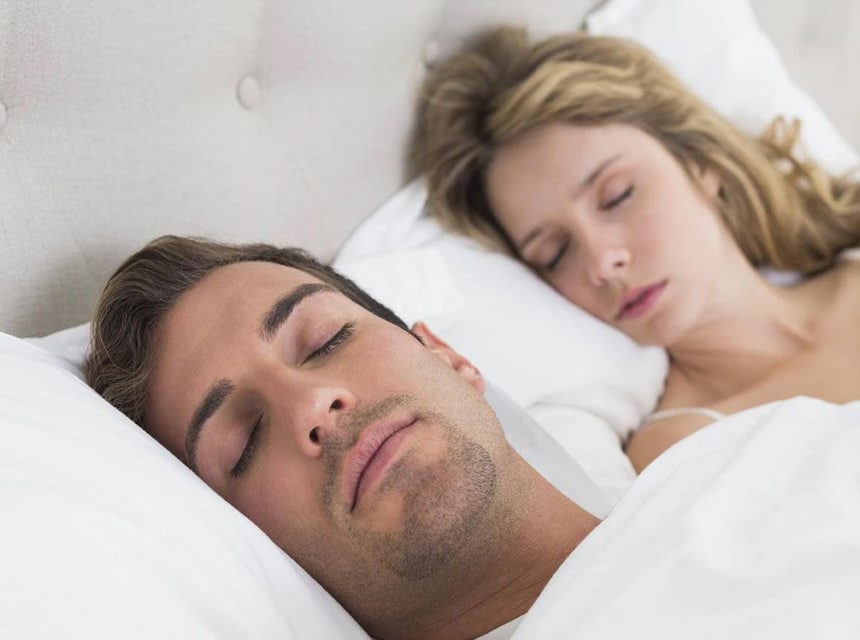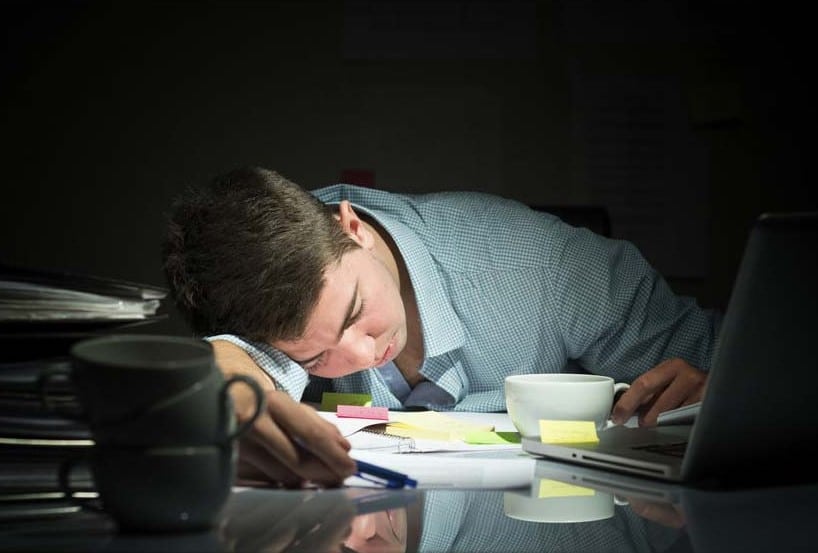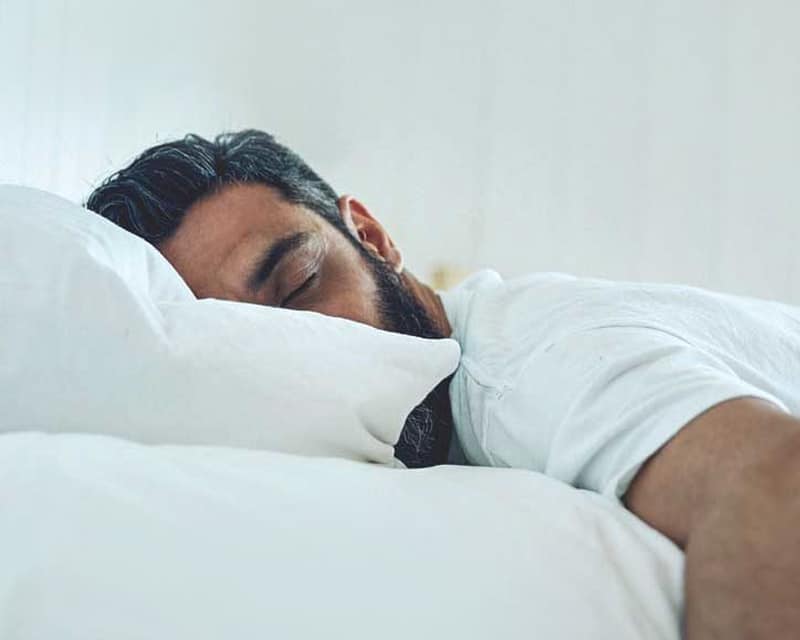

Every adult needs about 7 to 9 hours of sleep every night Trusted Source Assess Your Sleep Needs | Healthy Sleep | Harvard Medical School The amount of sleep that a healthy individual need is largely determined by two factors: genetics and age. healthysleep.med.harvard.edu to keep us healthy. By sleeping a total of 9 hours, it means we’re spending about one-third of our lives asleep. A frightening fact, isn’t it?
No doubt that seems like a lot of time, but it is much needed. Time spent sleeping isn’t time wasted. When asleep, our body is busy, making sure we are energetic, healthy, and productive when awake. As important as the duration of our sleep, the quality of our sleep is equally important. That means having a deep sleep is crucial. But how much deep sleep do you need?
Deep Sleep is also called slow-wave sleep. It is the period of sleep that happens just before dreaming. This period is dubbed “deep sleep,” at this time, we are less likely to wake up. We enjoy our most profound slumber during this period.
Deep sleep is very crucial to our physical recovery. During deep sleep, the restorative process takes place, making us feel a good night’s rest. This process entails the release of growth hormones to our muscles, cells, and organs for repairs.
There are two primary categories of sleep: non-rapid eye movement (non-REM) and rapid eye movement (REM). Each of these categories has various stages which are vital to our sleep. Generally, humans rotate through these stages in a periodic pattern as we sleep. Hence, a whole night’s rest will mean cycling through these stages several times before we wake up.
By understanding these stages, you can employ various strategies to ensure that you get a better and deeper sleep every night. Hence, you will be able to take up feeling refreshed and rested every day.
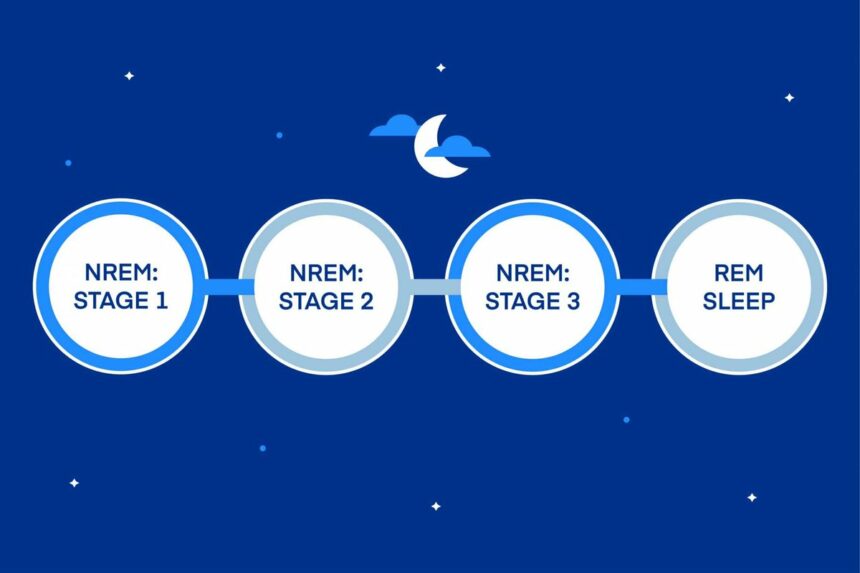
As you sleep, your body first goes into non–rapid eye movement (non-REM) sleep. Non-REM sleep consists of three stages; Stages one to three.
Stage One
The first stage of non-REM is called the transition period. It is the time the brain and the body shift from consciousness to unconsciousness. This period is relatively short, lasting just for a few minutes. People can quickly wake up from this stage of sleep compared to other stages.
At the first stage of non-REM, the body starts to slow down its rhythm. Both the breathing rate and heart rate mask slow down, and the eyes begin to relax. At this stage, the muscles also start to relax but may twitch occasionally. As the body and brain both unwind, the brain waves also start to slow down. This results in reduced sensory stimulation and brain activity.
Stage two
Another light stage of sleep is the second stage of non-REM sleep. This stage occurs when the body is transitioning to deeper sleep. It is reported that humans spend most of their time during the sleep cycle in the second stage of non-REM. This is based on the study carried out by the National Institute of Neurological Disorders and Stroknoteste.
Within the body, both the breathing rate and the heart rate now slows down more. Eye movement stops, and the muscles further relax. The core body temperature also reduces. Even though the brain waves further slow down, a small burst of electric signals still occurs in the brain at this stage.
Stage three
The third stage of non-REM is considered slow-wave sleep or deep sleep. Even though the body achieves a few cycles through the night, the third stage takes longer during the first cycle.
During deep sleep, the breathing rate and heart rate are at the lowest. The eyes and muscles are very relaxed, and brain waves move very close. At this stage, it isn’t easy to wake an individual up. Sleeping disorders like sleepwalking and sleep talking also occur at this stage.
REM sleep is the final and fourth stage of the sleep cycle – the body transitions into REM sleep about 1 hour 30 minutes after falling asleep. During REM sleep, the eyes move back and forth behind closed eyelids. This implies that the body is transitioning to a conscious state. The breathing rate and heart rate start to increase. Brain waves also start to increase, looking like the normal conscious state. Both the heart rate and breathing rate continue to increase.
Most humans start to dream at the REM stage while the brain temporarily paralyzes the legs and arms. Temporal paralysis is to deter the body from acting out dreams.
| Age Group | Sleep Requirement (Hrs) | Deep Sleep Required (Hrs) |
| Newborn to 3 months | 12 – 18 | 2.4 – 3.6 |
| 3 months to 1 year old | 14 – 15 | 2.8 – 3.0 |
| 1 year to 3 years old | 12 – 14 | 2.4 – 2.8 |
| 3 years to 5 years old | 11 – 13 | 2.2 – 2.6 |
| 5 years to 12 years | 10 – 11 | 2.0 – 2.2 |
| 12 years to 18 years | 8.5 – 10 | 1.7 – 2.0 |
| 18 years and above | 7.5 – 9 | 1.5 – 1.8 |
The older we grow, the more our sleep needs change. Hence as we grow older, the less deep sleep our body needs. From the table, while an adult needs an average of 1.6 to 1.8 hours of deep sleep, children need 2.0 to 3.6 hours of sleep.
There are variants of factors that contribute to having a good deep sleep. However, most of these factors are dependent on your lifestyle. Living healthy and earning healthy are some of the sure ways of getting good deep sleep.
To get good deep sleep, ensure you:
There are a good number of factors that can prevent one from having a good deep sleep.
Weakened Sleep Drive
Taking naps can lead to a weakened sleep drive. An implication of this is that you can lose your ability to sleep normally. Hence, you get less deep sleep.
Sleep Disorders
Several sleep disorders are known to prevent good deep sleep. Sleep disorders like sleep apnea cause people to stop breathing while sleeping. Also, individuals diagnosed with periodic limb movements of sleep (PLMS) Trusted Source Periodic Limb Movement Disorder Causes, Symptoms, Treatments | WebMD Periodic limb movement disorder (PLMD), the only movement disorder that occurs only during sleep, is repetitive cramping or jerking of the legs during sleep. www.webmd.com unconsciously move their legs when sleeping. These disorders often disrupt sleep, preventing individuals from having a good deep sleep.
To have a decent deep sleep, these disorders need to be first treated. With time, getting deep sleep then comes naturally.
Substance Use and Withdrawal
The use of psychoactive substances, certain medications, alcohol, and caffeine significantly reduce deep sleep. Some of these substances include:
The stimulant present in tea, coffee, and various beverages is caffeine. Caffeine is known to boost energy and reduce sleep. Once consumed, it takes a while before the effect takes place in the body.
On the other hand, benzodiazepines, a class of tranquilizers drugs that consist of Valium (diazepam), are also known to reduce deep sleep. The same effect of reduced deep sleep is also achieved when opioid medications are consumed.
Presently, there’s nothing official that dictates the amount of deep sleep you should get. If you often dream when you sleep, it means your body is getting the much-needed deep sleep. In fact, scientists believe that dreaming helps us process our feelings and cement memories.
Generally, it is believed that humans spend less time in deep sleep than children.
The more you grow, the less time you spend in deep sleep. Based on this fact, kids (school-aged) and teenagers need to spend between 20% – 25% of their sleep time in their deep sleep. On the other hand, a minimum of 16% – 20% of sleep time should be spent by adults in a deep sleep.
With studies confirming that people spend less time in deep sleep as they grow, further studies also proved something else. Studies proved Men tend to have a sharper decrease in deep sleep compared to women as they grow.
As mentioned earlier, when we sleep, we experience various stages of the sleep cycle. And we all need the deep sleep stage to feel refreshed the following day. The more we grow, the less deep sleep we need. This is due to our bodies being fully developed and don’t need the same level of growth as kids.
These tips will help you increase the amount of deep sleep and help you get a quiet mind and more deep sleep.
Daily sweating sessions, be it working out or doing sports, are undoubtedly beneficial to your sleep. Data shows that people who regularly do exercises have a better sleep compared to people who don’t. Several studies also confirmed that working out for about 150 minutes each week increases your chance of getting good sleep.
Nevertheless, ensure you don’t undergo intense workouts before bed. This can increase your heart rate leading to insufficient sleep.
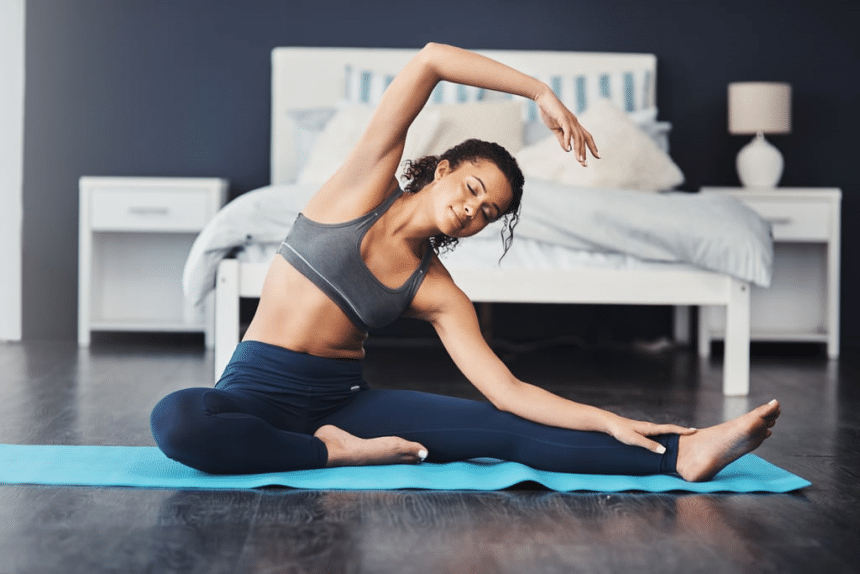
Be it a stressful afternoon with your children or a hectic day at work, stress can make it quite impossible to quiet your mind and sleep off. One of the best ways to curb this stress and relax your body is to create a bedtime ritual.
Your bedtime ritual should last a minimum of 30 minutes and a maximum of one hour. This will assist your mind in linking the routine with sleep, ultimately promoting good deep sleep.
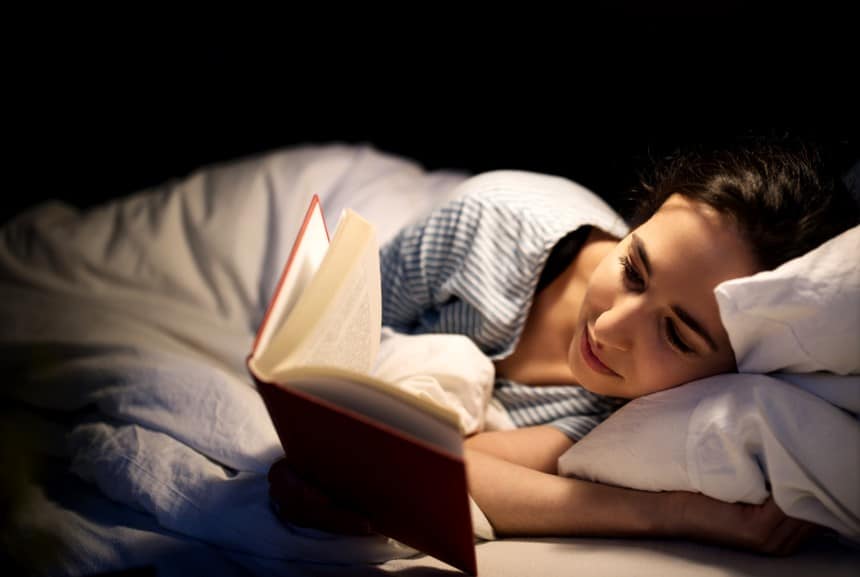
An excellent way to get deep sleep is to take a warm relaxing bath or shower. Studies suggest that a warm bath helps to improve the overall quality of sleep, most especially in adults.
A particular study suggests that having a warm bath 90 minutes before bedtime improved the quality of sleep. Possibly, if you don’t feel like taking a full bath, you can wash your feet with warm water. Washing your legs has the same effect as having a full bath. After washing your legs with warm water, you can put on some socks to keep your legs warm.

Don’t eat very late into the night and close to bedtime. Eating late can negatively impact both the natural production of HGH and sleep quality.
On the other hand, the type and quality of food you eat at night is also essential. A study reveals that high-carb meals consumed four hours before bedtime improved deep sleep in adults. Another study suggested that a low-carb diet also helps improve sleep.

Caffeine often makes it difficult for the body to fall and stay asleep, reducing deep sleep. It is the stimulant present in various beverages such as coffee. A study discovered that taking caffeine seven hours before bedtime decreases the amount of sleep by 60 minutes. When going to bed, drink tea, water, and other decaffeinated drinks instead.
Drinking alcohol just before bedtime is a bad idea. No doubt, taking alcohol might help you sleep, but you stay asleep for long. Once the sedative effect wears off, a rebound effect is created. This wakes you up in the middle of the night, cutting off your deep sleep.

Sound plays a vital part in our ability to fall and stay asleep. To have a good deep sleep, you must get rid of annoying sounds, especially if you have noisy neighbors or live in the heart of a city.
You can block out these annoying sounds using white noise or pink noise. White noise masks the sound that occurs in an environment, while pink noise gives calming nature sounds. Examples of pink noise include the sound of waves crashing a beach or the sound of rainfall. Both white noise and pink noise have been discovered to help improve memory and increase deep sleep.
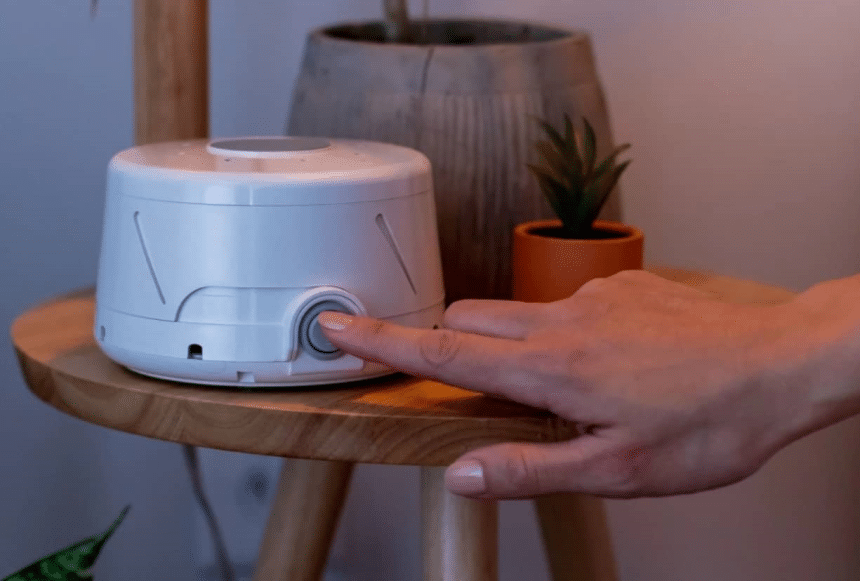
A little wonder why we get a better sleep when we lodge in a hotel? This is so because of the soothing environment and the quality of the bed available in hotels.
A study once showed that the sleep benefits of a quality mattress are enormous. The study reveals that good mattresses reduce shoulder pain by 60%, back stiffness by 59%, and back pain by 57%. Overall, a good quality mattress improves sleep by 60%. According to most reviews, the Brooklyn Aurora Hybrid mattress is one of the top-quality mattresses in the market. It features cooling gel beads which liquefy and solidify at high and low temperatures respectively to give a perfect sleep. Experts advise that we change and upgrade our bedding every five to eight years.
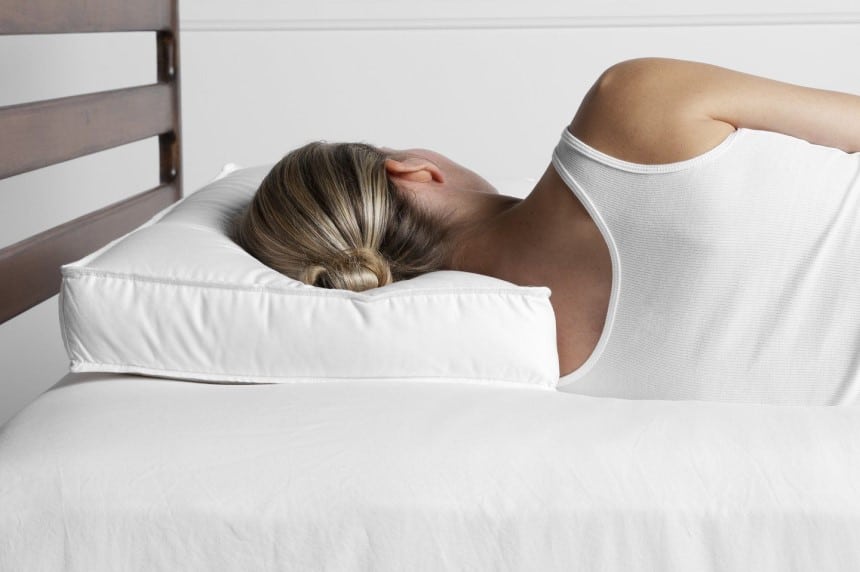
Naturally, you can tell if you’re not getting adequate deep sleep. When you wake up, the familiar feeling of exhaustion and tiredness is a natural indication that you’re not getting good deep sleep. Asides from our body reactions, there are also several kinds of sleep technology that can track your sleep.
You can use sleep tracking applications like the Sleep Cycle app and the SleepScore app to record toy lifespan sleep habits Trusted Source Waking up one hour earlier than usual may reduce depression risk | Harvard Health New research suggests that people who wake up an hour earlier than usual, without sleeping less, may reduce their risk of major depression. www.health.harvard.edu . While these apps won’t improve the deep sleep you get, they give an insight into your sleeping habits and assist in identifying areas you can develop.
This article effortlessly answers the question of how much deep sleep you need. But, as vital as deep sleep is, you shouldn’t forget it’s just a part of an entire sleep cycle. As such, make sure you promote your overall sleep using the strategies discussed above. Indeed, the best approach to getting more deep sleep is as simple as setting more time aside to rest every night.
Do not forget that sleep is an integral part of our life, and it is crucial to allocate enough time for it. If you haven’t had enough sleep today, drop everything and go to bed!
